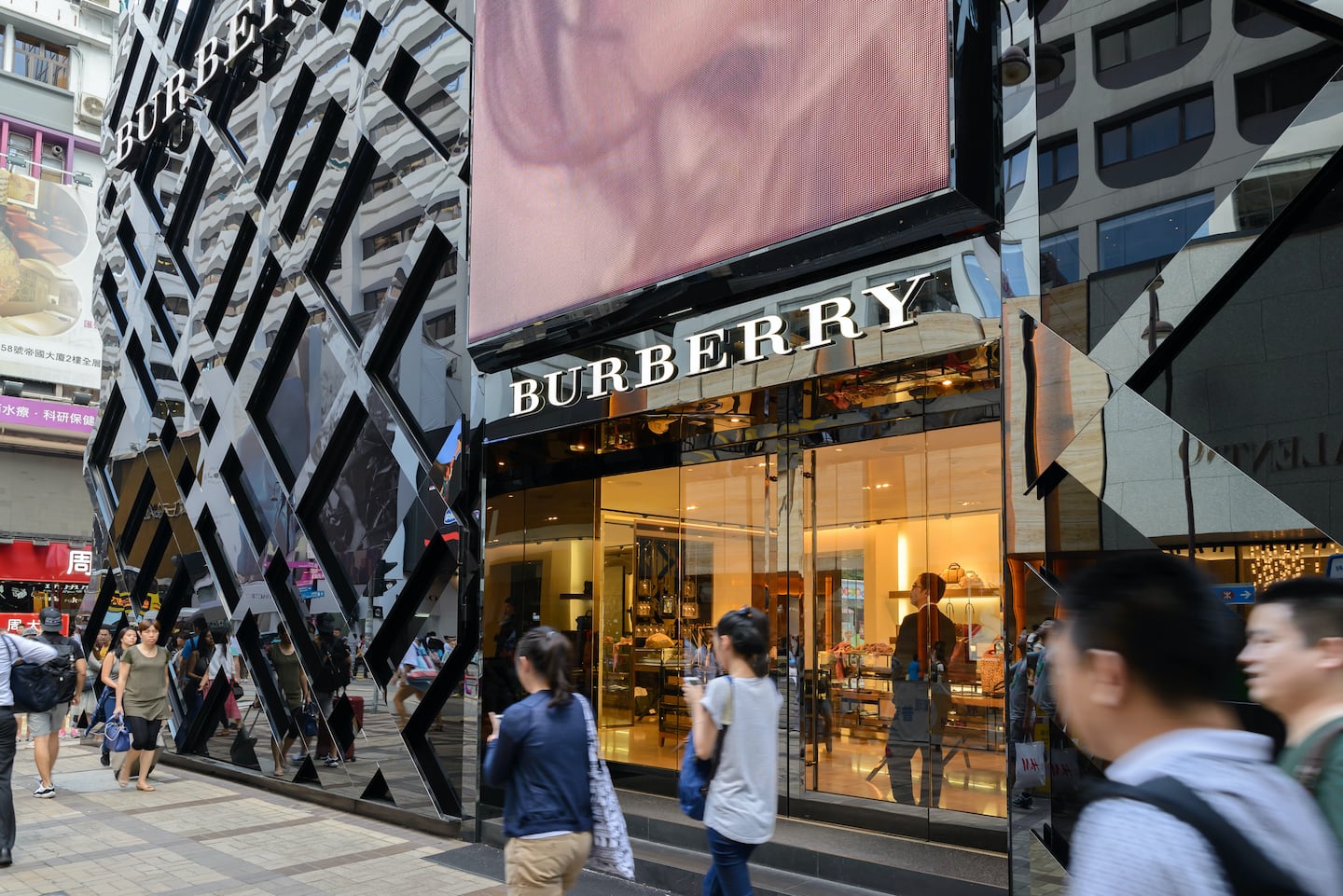
The Business of Fashion
Agenda-setting intelligence, analysis and advice for the global fashion community.

Agenda-setting intelligence, analysis and advice for the global fashion community.

LONDON, United Kingdom — British luxury giant Burberry warned of a dramatic hit to sales Thursday in a stark foreshadowing of the pain to come for the wider luxury market as the Covid-19 pandemic spreads, forcing store closures and savaging consumer demand.
The company — which, like much of luxury, is heavily exposed to demand from China, where the outbreak first began — said it has already seen sales fall between 40 and 50 percent over the last six weeks. However, it expects the decline to worsen to between 70 and 80 percent in the final period of the month. Overall, Burberry expects comparable retail store sales in its fiscal fourth quarter, which ends March 28, to be down around 30 percent compared to a year earlier.
The brand's updated guidance comes as western markets grind to a halt and China begins to reopen. According to Bernstein, 44 percent of Burberry's sales are to Chinese nationals, though much of that spend comes from tourists shopping outside of the mainland. And that customer isn't returning any time soon.
Governments are imposing strict measures to limit the spread of Covid-19, with Italy and France among the countries that have mandated that all non-essential stores shut. Companies including Chanel, Gucci-owner Kering and Tommy Hilfiger-owner PVH have voluntarily shuttered stores in the US, with shops also beginning to close in the UK.
ADVERTISEMENT
Burberry said more than 60 percent of its stores across Europe, the Middle East, India and Africa were closed, and around 85 percent of stores in the Americas had shuttered. Overall, 40 percent of the company’s directly operated shops are closed, with more closures expected in the coming days. Those that are still open are operating with limited hours and “very weak footfall.”
The dire forecast is a rare touchpoint for investors in a time of mounting uncertainty, as a growing number of brands suspend guidance. In its annual earnings on Wednesday, Prada gave little concrete indication of how its business will be affected, beyond warning that the impact would be negative. On the same day, fast-fashion giant Inditex said sales had fallen 24 percent between March 1 and March 16, but declined to provide guidance for the year.
There's no doubt, however, that the fashion industry is facing a period of protracted pain. In February, Bernstein analyst Luca Solca warned that luxury fashion should brace for a "gap year" as a result of the virus' impact on China. Since then, things have gotten much worse. Share prices have plummeted and banks are beginning to downgrade brands. Kering's share price has fallen nearly 40 percent in the last month, while rival LVMH has tumbled 30 percent. Burberry is down more than 40 percent over the last four weeks.
Burberry said it “remained confident in its brand and strategy,” but the company is taking steps to contain costs, including renegotiating rents, restricting travel and reducing discretionary spending. Most of its office-based teams are now working remotely, and those who can’t do so are on reduced work patterns and specific shift rotations.
We’re tracking the latest on the coronavirus outbreak and its impact on the global fashion business. Visit our live blog for everything you need to know.
Related Articles:
[ What China’s Economic Disruption Spells for the Global Fashion IndustryOpens in new window ]
[ Coronavirus Is Already Changing How People Shop. Here's How. Opens in new window ]
[ Fashion on Lockdown: What's Closed, What's CancelledOpens in new window ]
The guidance was issued as the French group released first-quarter sales that confirmed forecasts for a slowdown. Weak demand in China and poor performance at flagship Gucci are weighing on the group.
Consumers face less, not more, choice if handbag brands can't scale up to compete with LVMH, argues Andrea Felsted.
As the French luxury group attempts to get back on track, investors, former insiders and industry observers say the group needs a far more drastic overhaul than it has planned, reports Bloomberg.
After growing the brand’s annual sales to nearly €2.5 billion, the star designer has been locked in a thorny contract negotiation with owner LVMH that could lead to his exit, sources say. BoF breaks down what Slimane brought to Celine and what his departure could mean.